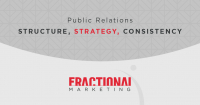Guidance for AEC Industry Technical Professionals
Many firms in our industry operate in a doer/seller model where firm leadership and project managers are tasked with bringing in projects while also being billable. So how do you do both when time is limited? It boils down to one thing: having people skills. Most of us prefer to shop where we feel most welcome, to borrow a line from Cheers, where “everybody knows your name.”
There are two important aspects to developing those people skills for strengthening client relationships and increasing repeat work:
1. Develop Excellent Client Relationship Skills. How do you do that? By first understanding that perception is reality. Whatever the client views as issues on your project is their reality regardless of whether you think they are valid or not. So, work from their perspective. Before you deliver those drawings, ask yourself: “Have these drawings been coordinated across all the disciplines?” As a marketing consultant who has interviewed hundreds of clients, I can tell you this is the number one complaint. Clients perceive—so it is their reality—that QA/QC is a mere buzzword in our industry because of the number of times they end up doing that themselves.
According to sales consultant Jeffrey Gitomer, there are 15 reasons why your clients might not hire you again:
15. Poor training
14. Poor service delivery
13. Poor product quality
12. Nickel and diming
11. Dumb excuses about why you “can’t”
10. Poor professional package or image
9. Inadequate capability to handle client’s problem
8. Too eager to do more business
7. Over-promising
6. Poor or rude collection practices
5. Unfriendly people on the front line
4. Difficult to do business with
3. Unavailability of people
2. Poor response time
1. Shows no genuine or personal interest
These reasons are “people” problems—from front-line to administrative staff such as accounting. Everyone’s focus should be on how to make the client feel like they are your only client.
So how do you know what your client feels? Ask them! We recommend that every firm have a formalized Client Relations program where clients are regularly asked what your firm is doing right and where you need to make improvements. Clients love to give their feedback and will be impressed that you asked. Just make sure you thank them for taking the time to be interviewed and act on what you were told. They won’t give you feedback a second time if you don’t listen to them the first time.
2. Develop Excellent Business Development Skills. In his book How to Swim with the Sharks without Being Eaten Alive, Harvey McKay states, “When you know your customers, some of their special interests or characteristics, you always have a reason to contact them.” Knowing your client as a person, as a friend, goes a long way to working successfully with them. Professionalism is not merely expertise; it can go hand-in-hand with friendliness. Harvey MacKay has 66 questions he recommends you use as a way to learn something new in every client meeting—from how many children they have and what their hobbies are to their favorite restaurant and their special interests. Once you take a genuine interest in your clients as people and get to know them as friends, you can ask questions like: “What projects are being planned down the road?” or “What project needs do you have that aren’t being taken care of?”
Remember, clients don’t hire firms—they hire people. It costs firms 6–8 times more to obtain a new client than to keep a current one. Everyone who has ever had to fill a position knows how difficult and time-consuming that process is. Now consider that with respect to replacing a long-term client. It makes sense to provide the training, mentoring, and building of staff so they engage in a more effective and personal way with your firm’s clients!






